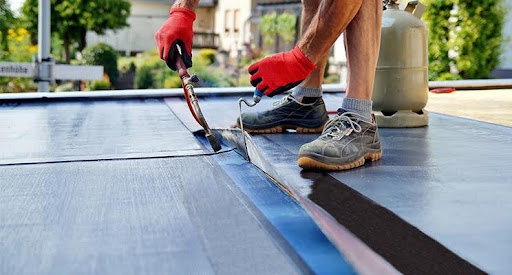Waterproofing is one of the most basic parts of building. For business buildings, waterproofing keeps water out. This is necessary for all houses in areas that are humid or wet.
In fact, 80% of building problems are caused by water. Without proper sealing, water damage and leaks are likely to happen to your building. Things like mold and dry rot could get worse because of this. These are some ways that commercial waterproofing is different from home waterproofing.
Manner of Application
Hotels, schools, and other commercial buildings, like high-rises and hotels, are bigger than homes. So, they are different when it comes to waterproofing the base, the roof, and the retaining walls.
Commercial buildings often have protection on their roofs because they are bigger and get more use. Because it rains so hard in Palm Beach, your building is more likely to leak and flood. Without proper draining, water can pool on flat or concrete roofs. This, in turn, can speed up the deterioration process and make your roof less stable.
The roofs of most homes are wedge-shaped, which makes it easy for water to drain off. For this reason, since most homes don’t have flat roofs, different materials are used.
Products and Solutions
Most commercial building design are very big and have flat roofs, swimming pools, or concrete tanks. It’s possible that concrete is the best building material because it is stronger and lasts longer. A waterproof coating is put on concrete to make it resistant to water.
A lot of different goods are on the market that are used to keep water out. There are cementitious waterproof coverings, waterproof solutions based on liquids, and waterproof solutions based on bitumen.
Liquid-based waterproofing materials work best because they are flexible and blend right into the pavement. One of these is a polyurethane membrane option, which sticks to concrete very well. It is also immune to UV light and weathering very well.
For homes, on the other hand, wood and metal are the main building materials. In this case, those kinds of answers don’t work.
The Price And Upkeep
When compared to business spaces, waterproofing homes isn’t too expensive. If you have experience with building things, putting down a waterproof covering will be easy for you.
For commercial buildings, on the other hand, you need a professional with a lot of knowledge. This is done to make sure the people inside are safe and healthy.
Commercial areas also tend to fall apart faster than residential ones because they get more foot and car traffic.
Comprehensive Drainage
Proper drainage is important in both homes and businesses, but it can be much more of a problem in businesses. To control the flow of water on the bigger roofs, you need to install a complete drainage system with scuppers, gutters, downspouts, and internal drainage mechanisms.
Multi-Layered Approach
One way to improve the efficiency of commercial waterproofing is to use more than one layer of different waterproofing materials. In order to make a strong shield against water getting in, this could mean using a mix of membranes, coatings, and sealants.
